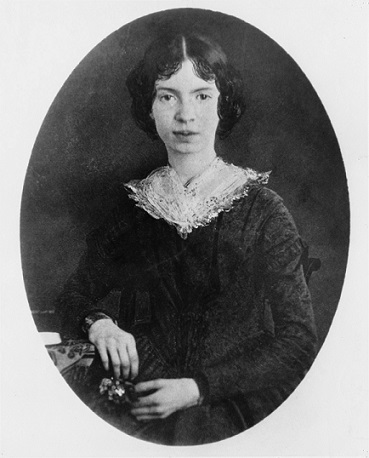|
home | what's new | other sites | contact | about |
||
|
Word Gems exploring self-realization, sacred personhood, and full humanity
Emily Dickinson I’m "wife"—I’ve finished that
Emily Dickinson (1830-1886)
I'm "wife"—I've finished that— How odd the Girl's life looks This being comfort—then
In Emily Dickinson's "I'm 'wife'—I've finished that—," the speaker, a married woman, compares her life now as a wife to her former life as a "Girl," or single young woman. She says in the first stanza that her status has gone up in the world. Now that she is married, she is "Czar," a "Woman," and her position in life is "safer." In the second stanza, the speaker looks back at her old life as a girl from a superior state, likening this view of her earlier days to how the earth must seem to those in heaven. Yet there is also an ironic undertone in this passage, as the speaker describes herself as living behind an "eclipse," suggesting that her husband now overshadows her. In the third stanza, the narrator goes back to praise being a wife, saying she has "comfort" now, rather the "pain" of her former, single life. She ends abruptly, stating that she doesn't need to compare anymore: "I'm ‘Wife’! Stop there!" While the poem, on the surface, seems to say that being a wife is far superior to being unmarried, some of the language suggests otherwise. First, the main attributes to wifehood the speaker mentions are "safe[ty]" and "comfort." In addition, comparing marriage to being eclipsed suggests she is diminished or made dimmer by having wed. Finally, she simply decides to stop comparing at the end, as if it is dangerous to think too long about what she has done. She will "stop" at being a "Wife" and not risk regretting her decision. Dickinson was single her whole life. The poem perhaps reflects her awareness that being a wife was considered by society better than being single, but the poet also seems to be expressing her doubts, even as she acknowledges the normatively of marriage: Are comfort and security worth the price? Why does one have to "stop" analyzing her situation and simply settle for being a wife? Dickinson uses her signature dashes to break up the poem and give readers the chance to pause and absorb it. The exclamation points at the end suggest that the speaker is emphatically cutting off her reflections so that she doesn't have dwell on the implications of her choice. The poem's use of hyperbole—as seen in the metaphorical uses of "Czar" and "Heaven"—emphasizes the contrast between wifehood and singleness.
|
||
|
|
